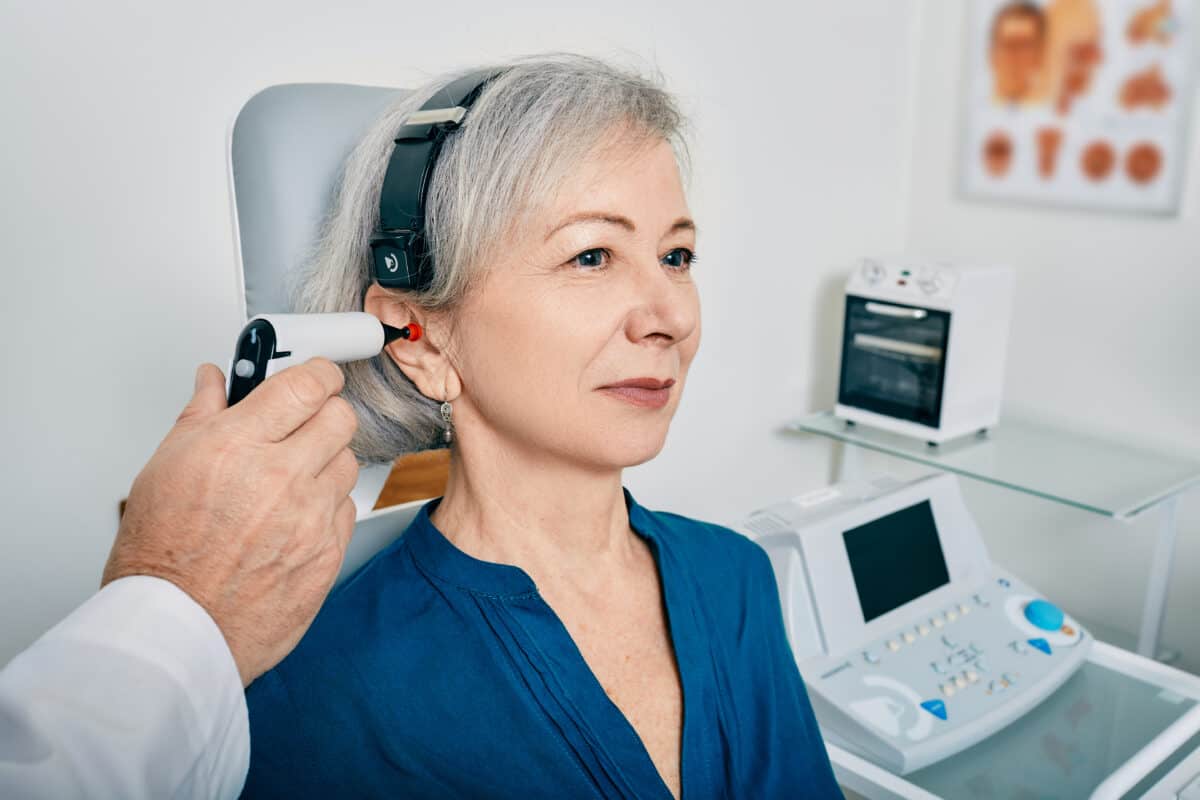In the realm of audiology, the intricate connection between hearing loss and cognitive decline, particularly dementia, has been the subject of intense research and discussion in recent years. As leading audiologists and hearing professionals, we recognize the profound impact that hearing loss can have on a person’s overall well-being. This article delves into the latest advancements in hearing loss prevention, diagnosis, and management, highlighting the crucial role of early detection and shedding light on potential future interventions.
The Hearing-Cognition Nexus
Hearing loss and cognitive decline are intertwined in a complex relationship. Recent studies have revealed that untreated hearing loss may accelerate cognitive decline and increase the risk of developing conditions like dementia. The sensory deprivation resulting from hearing impairment places additional cognitive load on the brain, potentially diverting resources from higher-order cognitive functions. This underscores the importance of addressing hearing loss not only for its impact on communication but also for its potential implications for cognitive health.
Advancements in Prevention
Prevention is the foundation of maintaining optimal hearing health throughout one’s lifespan. While age-related hearing loss remains prevalent, recent research has illuminated modifiable risk factors that can influence the course of hearing deterioration. A healthy lifestyle that includes regular exercise, a balanced diet, and cardiovascular health maintenance has been associated with a reduced risk of hearing loss. Additionally, protecting ears from excessive noise exposure through the consistent use of hearing protection can significantly mitigate the risk of noise-induced hearing loss, a prevalent concern in today’s noisy world.
Cutting-Edge Diagnostic Techniques
Advancements in audiological diagnostics have revolutionized our ability to detect and understand hearing loss. Modern audiological assessments utilize sophisticated technologies such as high-frequency audiometry and otoacoustic emissions testing to detect subtle changes in hearing sensitivity. Furthermore, speech-in-noise testing has become a vital tool in evaluating a person’s ability to understand speech in challenging listening environments, closely mirroring real-world scenarios.
Emerging research has also explored the potential of novel biomarkers and imaging techniques to provide insights into the relationship between hearing loss and cognitive decline. While these approaches are still in their infancy, they hold promise for early identification and intervention.
Innovations in Management
The management of hearing loss has evolved beyond traditional hearing aids, although these remain indispensable tools. Recent advancements in hearing aid technology, such as directional microphones, noise reduction algorithms, and connectivity features, have vastly improved the listening experience for individuals with hearing loss. Furthermore, the development of personalized hearing solutions tailored to an individual’s unique hearing profile has allowed for more effective amplification and communication in various environments.
Cognitive interventions, including auditory training and cognitive behavioral therapy, have gained traction as complementary approaches. These interventions aim to enhance the brain’s ability to process auditory information and adapt to challenging listening situations, ultimately improving communication and quality of life.
The Future of Hearing Health
Looking ahead, the field of audiology holds exciting possibilities for the integration of cutting-edge technologies. Cochlear implants, once solely a solution for profound hearing loss, are now being explored for their potential cognitive benefits in individuals with mild to moderate hearing loss. Brain-computer interfaces and regenerative therapies are also on the horizon, offering the potential to restore hearing function at a cellular level.
The Imperative of Early Detection
Undoubtedly, early detection remains the cornerstone of effective hearing loss management. Routine hearing screenings, especially for those at risk due to age or noise exposure, are essential. Early intervention not only improves communication abilities but also reduces the cognitive load associated with untreated hearing loss, potentially mitigating cognitive decline.
As dedicated hearing professionals, we recognize the profound impact of hearing loss on individuals’ lives and its intricate connection to cognitive health. The dynamic interplay between hearing loss and cognitive decline calls for a comprehensive approach to prevention, diagnosis, and management. Advances in audiological diagnostics and treatments, coupled with a commitment to early detection, are pivotal in ensuring that individuals can navigate the path towards optimal hearing health and cognitive well-being. By staying abreast of the latest research and embracing evolving technologies, we can continue to provide compassionate care and enhance the quality of life for those we serve.
If you have any questions or would like to schedule an appointment, please contact us. Our team of hearing health professionals are ready to assist you with all your hearing related needs.


